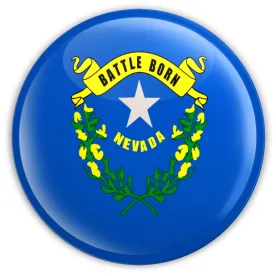Continuing the trend of states passing increasingly progressive employment regulations, Nevada recently enacted three new laws addressing paid leave, workplace drug testing, and minimum wage.
Paid Personal Leave
Following in the footsteps of Maine, which recently became the first state to enact a personal leave law, SB 312 will require private employers with 50 or more employees in Nevada to provide certain employees working in the state with up to 40 hours of paid leave per year, to be used for any purpose, including non-medical personal reasons.
Beginning January 1, 2020, covered employees will be entitled to accrue 0.01923 hours (or approximately 1.15 minutes) of paid leave for every hour worked, up to 40 hours per year. If using this accrual method, employees must be permitted to carry over any unused paid leave into the following year up to a maximum of 40 hours, though employers can limit total usage of paid leave in a given year to 40 hours. Alternatively, at the beginning of each year, employers can “front load” all the paid leave that the employee would be expected to accrue during that year, in which case the employer would not need to track accruals or require carryover of unused time.
Although employees will begin to accrue leave at the start of employment, employers are not required to permit use of such leave before the employee has been employed for 90 days. Employers also will be permitted to set a minimum usage increment of no greater than four hours. Employees must provide notice “as soon as practicable” of their need to use paid leave, but cannot be required to provide the reason for using the leave.
Temporary, seasonal, and on-call employees are exempt from coverage under the law. Further, employers already providing an equivalent amount of paid leave (whether pursuant to a collective bargaining agreement or other contract, agreement, or policy) to all employees who would otherwise be covered by the law will be exempt from coverage. New businesses will not be required to provide paid leave under the law during their first two years of operation.
Employers will be required to keep records of employees’ receipt and use of paid leave, as well as provide each employee with an accounting of the amount of paid leave available for the employee’s use on each payday. Employers also will be required to post a bulletin overviewing the law in a conspicuous location in the workplace, the form of which will be provided by the state Labor Commissioner.
The state Labor Commissioner will be responsible for enforcement of the law, and employers who violate the law will be subject to penalties of up to $5,000 per violation.
Pre- and Post-Employment Drug Testing
Also effective January 1, 2020, AB 132 will make it unlawful for Nevada employers to fail or refuse to hire a prospective employee because the individual submitted to a pre-hire drug screening and the test indicated the presence of marijuana.
The law exempts certain types of positions from the pre-employment testing restriction, including:
-
firefighters and emergency medical technicians;
-
positions requiring the operation of motor vehicles for which federal or state law requires the employee submit to screening tests;
-
positions funded by federal grant; and
-
positions that, in the determination of their employer, could “adversely impact the safety of others.”
In addition, for drug tests required within the first 30 days of employment, the law will allow an employee to contest a positive result by submitting to a second drug test at the employee’s expense. The employer would then have to “accept and give appropriate consideration to the results” of such a follow up test.
The provisions of the law will apply to all “screening tests,” defined as a blood, urine, hair, or saliva test designed to detect the general presence of a controlled substance or any other drug. This broad definition means that employers will be required to allow an employee to take a follow up test to contest any positive result, not just marijuana.
The law will not apply where it conflicts with provisions of a collective bargaining agreement or employment contract, as well as to the extent inconsistent or otherwise in conflict with the provisions of federal law.
State Minimum Wage Increase
Nevada also passed AB 456, which will gradually increase the state minimum wage (currently $7.25 per hour for employers offering a qualified health plan, and $8.25 per hour for other employers) by 75 cents annually over the next five years. The first increase will take place on July 1, 2020.
The increases will culminate in July 2024 with an $11 per hour minimum wage for employers offering a qualified health plan, and a $12 per hour rate for all other employers. A qualified health plan is defined in the Nevada state constitution as a plan where the employee’s premiums are not more than 10% of that employee’s annual income from the employer providing the coverage.
The bill also will expand the categories of employees covered by the state minimum wage law to include, among others, outside salespeople whose earnings are based on commission, taxi and limo drivers, agricultural workers, domestic employees residing in the household, and casual babysitters.
* * *
Rebecca Fishbein, a summer associate in Proskauer’s New York office and a rising 3L at Columbia Law School, co-authored this post.




 />i
/>i

